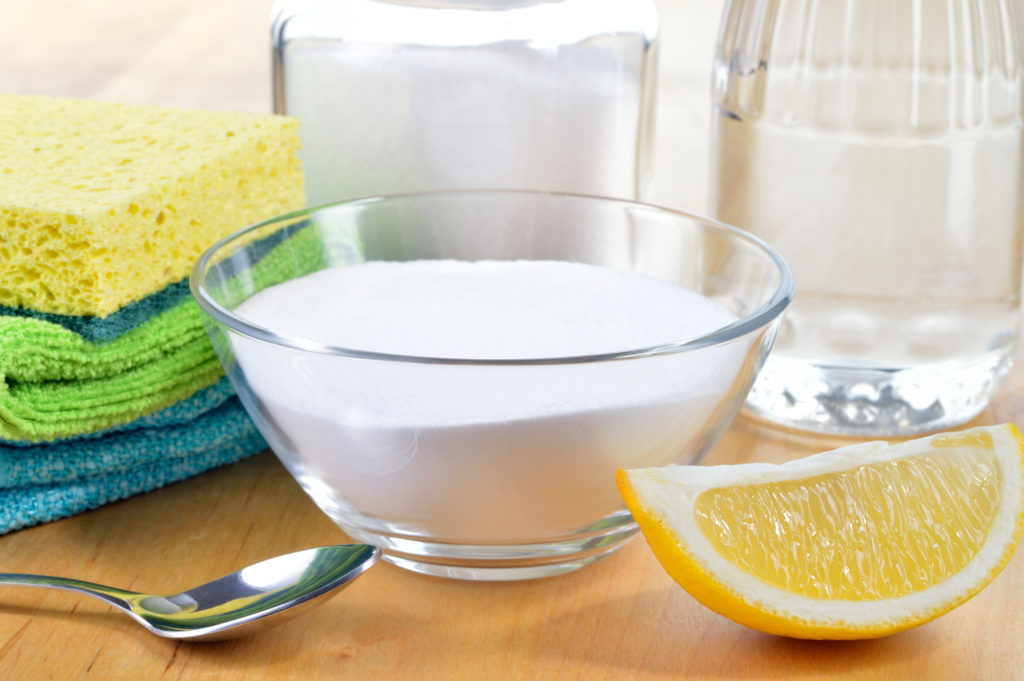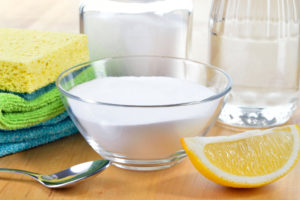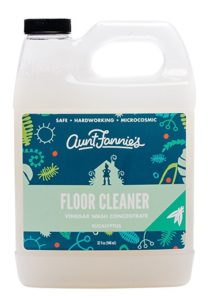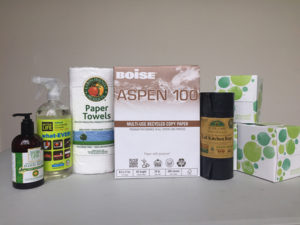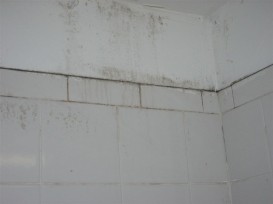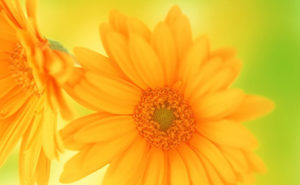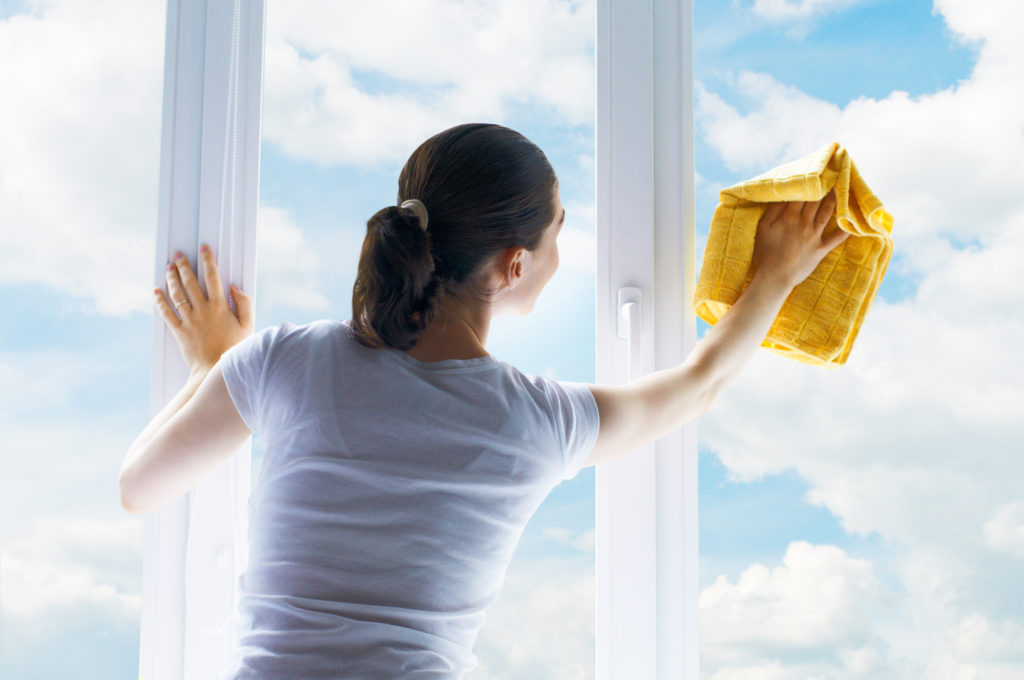
Washing windows shouldn’t make you sick. But the chemicals in some of the commercial window cleaners I used to use really got to me. They gave me headaches, made me nauseous, and generally left me feeling totally out of sorts.
That’s why I went searching for a safer, non-toxic window cleaner that would leave my windows sparkling without leaving me achey and ill.
I’ve teamed up with window glass repair company Apex Window Werks to bring you 3 DIY natural glass cleaner recipes that don’t contain nasty ingredients and that really work!
Why Can Conventional Glass Cleaners Make People Sick?
Before we get into my DIY natural glass cleaner recipes, I wanted to say a little about the ingredients in most conventional glass cleaners and why they cause problems.
According to the U.S. National Library of Medicine at the National Institutes of Health*, most window cleaners you’d find in your grocery store contain the following:
⇒Ammonia
⇒Ethanol Isopropyl
⇒Alcohol
⇒Methanol
Most glass cleaners also contain “fragrance,” which is really a compound of synthetic chemicals and phthalates that are released when the cleaner is sprayed. (Phthalates have been linked to liver, kidney, lung and reproductive system damage.**)
These chemicals easily enter our bodies because they’re so easy to inhale.
Most glass cleaners come in a spray pump bottle that atomizes the liquid cleaner into tiny particles.
Unless you’re wearing a face mask that covers your nose and mouth, you can’t help but breathe in some of the spray.
And even with a face mask, the chemicals can get into your eyes or on your skin.
These chemicals can make us sick in many ways, according to NIH:

♦Loss of vision
♦Sore Throat
♦Severe pain or burning in the nose, eyes, ears, lips, or tongue
♦Blood in the stool
♦Severe abdominal pain and vomiting
♦Low blood pressure
♦Dizziness
♦Insomnia
♦Irritability
♦Skin irritation
And this isn’t even the complete list of impacts!
3 DIY Natural Glass Cleaner Recipes That Really Work!
Here are 3 DIY natural glass cleaner recipes you can easily make at home.
They remove dust, dirt and grime without relying on any of the nasty chemicals found in many commercial cleaners.
And because you make them in small batches, you don’t need to add a preservative, the way even “green” cleaners you buy in the store might.
Also, depending on how dirty your windows are, you can strengthen or dilute the solution as you need to.
NOTE: For outdoor windows, start by spraying down the windows with water from your hose. Just make sure the windows are tightly closed so no water gets inside the house. But the spray from a forceful hose will loosen and remove dust, pollen, bird poop and other debris on the windows.
If needed, spray bird poop specifically with water or your cleaning solution, wait a few seconds, then rub off with a sponge. Removing excess dirt before cleaning will make it easier for the cleaning solution to work its magic.
Equipment
Clean Spray Bottle
Squeegee
Lint-free Cotton Cloth/Rag
Clean sponge
Rubber gloves
Ingredients
Water
Distilled White Vinegar
Limes/Lemons/Essential Citrus Oils
Baking Soda
Cornstarch
Liquid fragrance-free, vegetable-based dish soap
Recipes
#1 Water – Vinegar – Lemon or Lime Juice – Baking Soda
Fill a regular size spray bottle (or cleaned out one-liter soda bottle) 3/4 full with water.
Add 1/4 cup vinegar.
Squeeze the juice from a half of a lemon or lime, straining out the seeds and pulp to leave just the juice.
Add 2-3 tsp of baking soda. Shake well until all ingredients are combined.
Spray on the dirty window and squeegee clean. (The squeegee wipes away the water and any residual dirt on the window.)
Follow up with a spray of just clean water and the squeegee if necessary.
NOTE: Some people recommend using newspapers to wipe down windows. I find that newspapers make a mess when they’re wet, and may leave behind tiny pieces of paper. A lint-free cotton towel can also work well, but I’ve found that squeegees are really the best. They’re also very fast to use.
#2 Water – Lemon or Lime Juice – Cornstarch
If you hate the smell of vinegar, which can be a bit strong, try making a cleaning solution of an almost full bottle of water, the strained juice of an entire lime or lemon, and 1 tablespoon of cornstarch.
Again, combine the ingredients in the spray bottle, shake well, then spray.
#3 Water – Vinegar – Essential Oil – Cornstarch
If you find the water/vinegar/cornstarch solution works well but you hate the smell of vinegar and prefer something other than limes or lemons for fragrance, add 4 or 5 drops of a fragrant essential oil to your solution.
I personally love lavender, but you might prefer rose, geranium, lilac, coconut, or any number of other fragrances that are available as oils.
You won’t need to add that many drops to get the scent you prefer.
NOTE: Some folks have found that adding a little rubbing alcohol to their solution enhances its cleaning ability and helps make the windows shine.
I don’t add alcohol myself, but if you’re not satisfied with your results from water, vinegar, citrus and baking soda or cornstarch, add 1/4 cup of rubbing alcohol to your mixture and see if that makes a difference.
You can also add a couple of drops of liquid dish detergent if your windows are particularly grimy. But don’t overdo it, or you’ll have to rinse off your windows with plain water again.
By the way, even with these vegetable-based ingredients, I crack a window open when I’m spraying them inside the house, and avoid inhaling them while I’m cleaning.
Sponsor Note: Sponsors and partners enable us to bring you expert content so you can live the greener, cleaner life you want. Our editorial opinions remain our own.
Sources:


